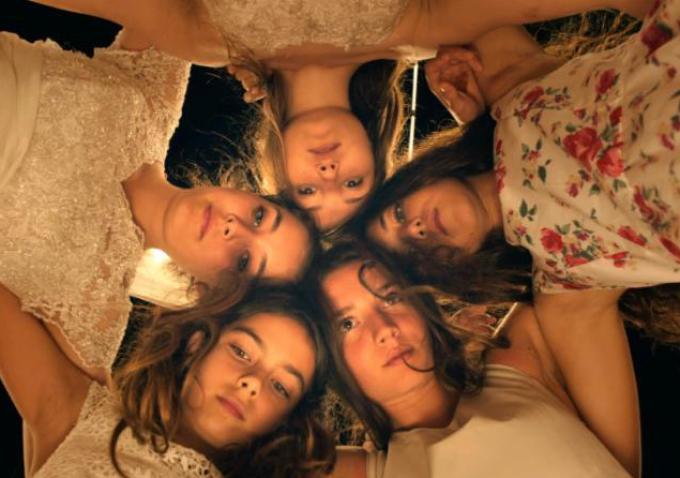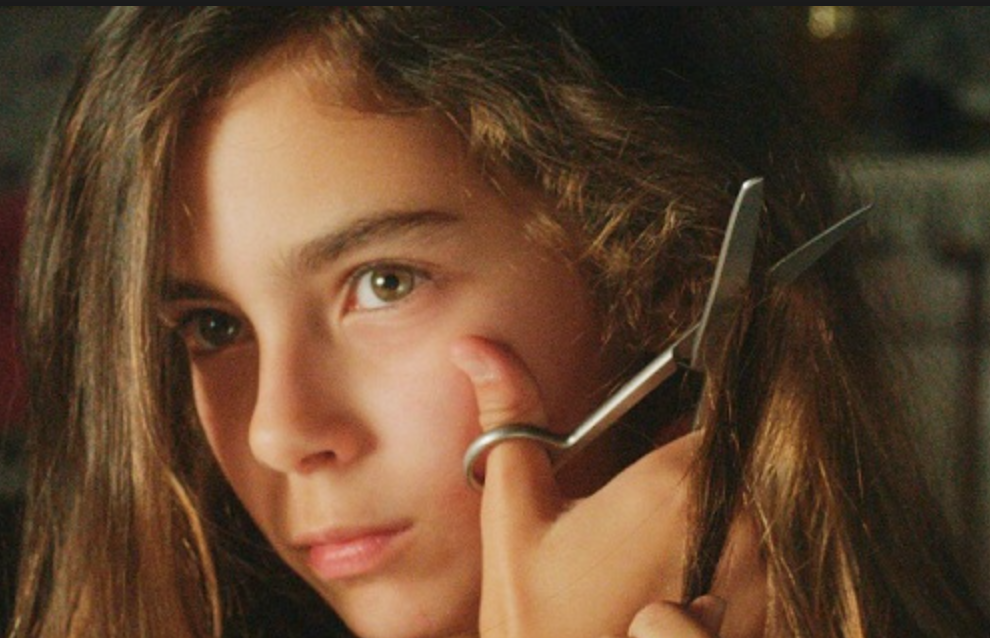 I keep thinking about “Mustang,” which opens this week in limited release. It has been described as a Turkish-Syrian “Virgin Suicides” but that comparison would be much more apt if Sofia Coppola had a penchant for female liberation rather than pink Converse. About a group of orphaned sisters (age 12-16) who are imprisoned in their grandmother’s home after getting caught playing with local boys, this is a horror movie about patriarchy on one level and the fiercest of fairy tales on another. Here is the text of a talk I delivered about it last weekend to the Westchester Cinema Club.
I keep thinking about “Mustang,” which opens this week in limited release. It has been described as a Turkish-Syrian “Virgin Suicides” but that comparison would be much more apt if Sofia Coppola had a penchant for female liberation rather than pink Converse. About a group of orphaned sisters (age 12-16) who are imprisoned in their grandmother’s home after getting caught playing with local boys, this is a horror movie about patriarchy on one level and the fiercest of fairy tales on another. Here is the text of a talk I delivered about it last weekend to the Westchester Cinema Club.
Really it’s impossible to discuss “Mustang” without discussing its director. Deniz Gamze Ergüven is a 37-year old-woman raised in Turkey and France. She identifies as a French film director though, and, indeed, though this is set in Turkey with a Turkish cast and in Turkish language, it is technically a French production. The French woman Alice Winocour is her co-screen-writer, and Ergüven counts among her mentors the legendary French director Olivier Assayas, who’s done such extraordinary films as “Summer Hours” and “Clouds of Sils Maria,” which is one of my favorite films of 2015.
That said, this film is very much inspired by the restrictiveness of Turkish life for women. When Deniz was 10, she had the same experience as the girls—she was caught playing on the shoulders of boys and was severely punished for it. As she’s said in interviews, Turkey was one of the countries to give women the vote; now they can barely get abortions and nearly everything coded as feminine is reduced to a shameful reference to sex.
Yet this film is not overtly political. We can extract a message about Turkey’s increasing trend toward fundamentalism and conservatism in this film but actually Ergüven is careful not to make much specific reference to Islam or contemporary politics. Instead, the film is imbued with a fairy tale quality. There’s the fact that  it’s about five wondrously long-haired orphan girls who need rescue; that it set in this otherworldly, remote Black Sea village; and there’s all those mythological motifs that abound—the muses, Rapunzel, the minotaur, and, of course, that five-headed hydra. Even way the film kicks into gear has a mythic quality—the girls trespass into a garden, bite into apples, and then get booted out of a metaphorical Eden as their gender becomes the only lens through which their grandmother and predatory uncle see them. Needless to say, such a lens becomes their prison.
it’s about five wondrously long-haired orphan girls who need rescue; that it set in this otherworldly, remote Black Sea village; and there’s all those mythological motifs that abound—the muses, Rapunzel, the minotaur, and, of course, that five-headed hydra. Even way the film kicks into gear has a mythic quality—the girls trespass into a garden, bite into apples, and then get booted out of a metaphorical Eden as their gender becomes the only lens through which their grandmother and predatory uncle see them. Needless to say, such a lens becomes their prison.
There’s a similarity to Sofia Coppola’s debut feature, “The Virgin Suicides,” about five sisters stuck in their house with their religious conservative parents. Ergüven admits to having seen that film and having read the Eugenides book its adapted from, but claims to be more influenced by the the Italian films “Rocco and his Brothers: or “Sola, 120 Days in Sodom.” Certainly though Mustang shares a dreamy quality with Coppola’s film these young girls are not nearly so listless. intent on transitioning from girl children to fierce self-propelled women in order to survive, they have morein common with the young trapped brothers of the recent doc “The Wolfpack.”
So let’s talk about these girls. With the exception of older sister Ece, they are all nonprofessional actors yet work brilliantly, especially Ilayda Akdogan, who plays one of the youngest sisters. I love how she shifts from defiant child to determined woman and then back again right in front of our eyes. To help them achieve their easy, naturalistic bond Ergüven showed them en masse films by directors ranging from Truffaut to David Lynch. She also named the film “Mustang” as she saw them as a pack of wild horses with their steely will and long manes, bucking for freedom.
The visuals enhance that quality. The camerawork is wonderfully kinetic with an interplay of fluid and confined camera movements that reflect the situation inside and outside their increasingly prison-like home, and the elastic editing helps build tension at the right moments, especially the soccer scenes and the build-up to the finale. If I had any quibbles I’d say that the voiceover and the finale itself feel a bit contrived. But the score by Warren Ellis of the cult rock band Nick Cave and the Bad Seeds helps heighten tension more naturally while also lending the film some international street cred.
This is both a very specific tale and a very universal one about the dangers women face as they come into their own—about female agency, plain and simple. Each sister has a different way out and each route feels profoundly symbolic. Yet on a simpler more aesthetic level, this film—with its sun-dappled naturalism and a sometimes-sly, sometimes in-your-face humor—also packs a punch. It is France’s entry in the foreign-language category for the Oscars this year—which is a powerful statement, especially now. It is a more than admirable submission.
